|
|
|||||
This week, we look ahead to the African Union Summit and the AU’s newfound G21 clout. Plus, the world’s longest-ruling leader doesn’t surprise, and ExxonMobil keeps churning out profits. |
|||||
|
|
|||||
Top newsGetting schooled: The theme of this weekend’s AU Summit is highly relevant: “Educate and Skill Africa for the 21st Century.” Sub-Saharan Africa has the highest rate of education exclusion in the world: 98 million children are out of school. That exclusion gets worse as children get older:
That’s hardly a recipe for success for the world’s youngest continent (the average age is 19), especially as it aims to harness its “demographic dividend.” To achieve that, its robust summit agenda will need to be backed by meaningful action.  Changing of the guard: The summit will see 10 new members elected to the Peace and Security Council, the AU’s primary decision-making body for security matters. At a time of not-so-little fires burning everywhere, the 15-member council has a lot on its plate. In eastern DRC, the on-again, off-again conflict between the army and rebel groups is on-again, prompting military intervention by the Southern African Development Community. Sudan’s civil war has displaced more than 10 million people in 10 months. And in West Africa, the changing geopolitical alliances of the Sahel’s military juntas have created uncertainty about the region’s stability. Moonshots: At the summit, the AU will launch the second 10-year implementation plan for Agenda 2063. The plan outlines seven “moonshots”, or ambitions, to pursue over the next decade. That includes ensuring that all 55 AU member states attain “at least middle-income status.” That’s an ambitious (and noble) goal. Another moonshot: Africa becoming “a strong and influential global player.” Its inclusion in the G21 is a solid start. Stepping into the ring: Speaking of the G21, the AU will (quickly) need to figure out how to leverage its membership to enhance Africa’s voice and influence on the global stage. That includes synthesising common positions across the AU’s members. That’s no easy task, but it’s imperative: Unlike the EU, the AU doesn’t have delegated authority to act on behalf of its members on most issues. The AU also needs to do mundane yet critically important things, like choosing representatives with high political legitimacy and supporting them with talented operational staff. As the political adage goes, personnel is policy. Ready for it?: With the Brazilian G21’s first finance ministers meeting taking place later this month, the AU Summit provides an opportunity to develop bold common positions on how to make the international financial system work for African countries. Those could include:
Chairperson in charge: The incoming AU Chairperson, Mauritanian President Mohamed Ould Ghazouani, has his hands full. In addition to helping the AU navigate its newfound G21 clout, he’s facing challenges at home. His predecessor and ally, ex-President Mohamed Abdel Aziz, was sentenced in December to five years in prison for money laundering and “illicit enrichment.” Ghazouani also recently struck a controversial deal with the EU to curb people smuggling to Spain’s Canary Islands in exchange for money and investment. More than 7,000 migrants landed in the Canary Islands in January, the majority arriving from Mauritania, which hosts an estimated 150,000 refugees from neighbouring Mali. Hushed voice: The government of Equatorial Guinea is reportedly retaliating against a lawyer who took to TikTok to advocate for judicial independence. In other words, it appears to be business as usual for the regime of President Teodoro Obiang, the world’s longest-ruling leader often criticised for rights abuses. After posting the video, Gemma Jones’ authorisation to practise law in the country was revoked. It’s not the first time she’s been harassed for voicing critical opinions: In 2021, her office’s electricity was cut after she raised concerns about a legal case involving the national electric company. From the ONE Team
The numbers
 |
|||||
|
|
|||||
Quote of the week
|
|||||
|
|
|||||
Heroes of the weekHERO: Kelvin Kiptum, the 24-year-old Kenyan long-distance runner and World Marathon record holder who tragically passed away in a car accident that also claimed the life of his coach, Gervais Hakizimana. HERO: Namibia, for appointing 27-year-old Emma Theofelus as its ICT minister. She’s now Africa’s youngest cabinet member. |
|||||
|
|
|||||
What you should read, watch, and listen to:
|
|||||
|
|
|||||
A look ahead15-19 February: World Social Forum, Nepal and online. 16-18 February: Munich Security Conference, Munich, Germany. 17-18 February: African Union Summit in Addis Ababa, Ethiopia. 19 February: Africa Business Forum 2024, Addis Ababa, Ethiopia. 20-22 February: Global Summit for Disaster Risk Reduction, Nairobi, Kenya. 21-23 February: The Climate and Clean Air Conference, Nairobi, Kenya. |
|||||
|
|
|||||
The ONE Campaign’s data.one.org provides cutting edge data and analysis on the economic, political, and social changes impacting Africa. Check it out HERE. |
|||||
|
|
|||||
Did you like today's email?Loved it Mehhh Hated it |
|||||
|
|
|||||
Did you like today's email?Loved it Mehhh Hated it |
|||||
|
|
|||||
Wie hat dir dieser Newsletter gefallen?Richtig gut! Ging so… Überhaupt nicht. |
|||||
|
|
|||||
|
|||||
|
|||||
|
|||||
|
This email was sent by ONE.ORG to test@example.com. You can unsubscribe at any time. ONE Campaign |
